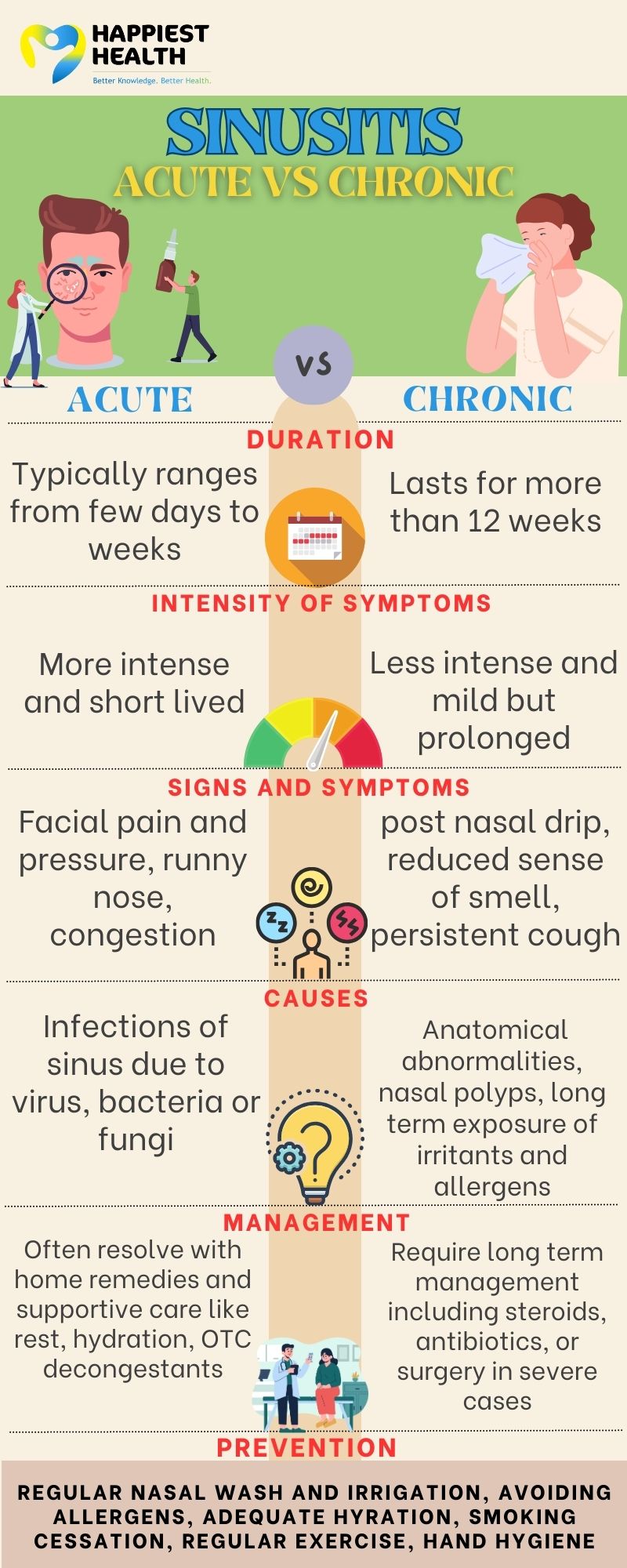Sinusitis, often referred to as a sinus infection, can be an unpleasant and persistent condition that affects millions of people each year. While the term ‘sinusitis’ may seem straightforward, there are two distinct types: acute sinusitis and chronic sinusitis.
Acute sinusitis is a short-term visitor that can wreak havoc on your life. It usually occurs due to a viral infection or, in some cases, a bacterial or fungal infection. Common colds, the flu, or allergies can lead to acute sinusitis, causing your sinuses to become inflamed and filled with mucus.
However, acute sinusitis typically resolves on its own within a few weeks. Home remedies are what you need to manage and get going. Staying hydrated, resting, and using a humidifier can also speed up recovery.
On the contrary, the symptoms of chronic sinusitis, persist for more than 12 weeks, despite attempts at treatment. Unlike acute sinusitis, which often has a straightforward cause like a viral infection, chronic sinusitis can be more complex and multifactorial.
While sinusitis can be a nuisance, understanding the key differences between acute and chronic sinusitis is vital in managing and treating the condition effectively. If you find yourself dealing with persistent or recurrent sinus symptoms, it is important to consult a healthcare professional for the right diagnosis and treatment plan.
















